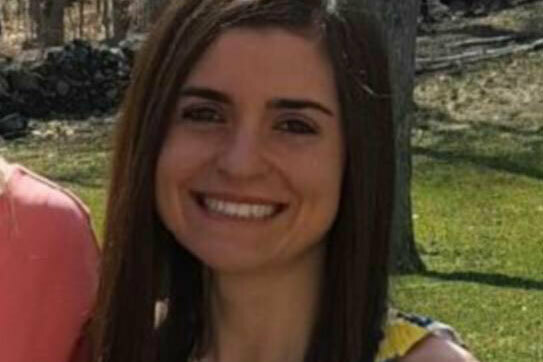
 Victoria Braga
Victoria Braga
For Victoria Braga ’11, a semester in Egypt as an undergraduate gave her a new perspective on the United States — and shaped her future career path.
Braga came to Notre Dame with an interest in international relations, but her study abroad experience inspired her to pursue a career as an attorney and a position in the U.S. government.
“I realized in Cairo that the United States is set apart from many other nations by its respect for the rule of law,” she said. “I wanted to help protect that value and promote it throughout the world.”
Today, Braga works as a trial attorney in the appellate section of the U.S. Department of Justice’s Office of Immigration Litigation.
“It’s a career I take a lot of pride in,” she said. “We are lucky to live in a country where law, liberty, and justice are valued, and I think the government plays a major role in protecting and defending those ideals.”
A welcome challenge
In Notre Dame’s College of Arts and Letters, Braga majored in Arabic and political science to explore the topics she was passionate about — and to make herself a more competitive candidate in the job market.
“Pairing the language with political science was in line with my interests and career aspirations,” she said. “But in an increasingly connected world, employees’ foreign language skills, knowledge of other cultures, and expansive worldviews are critical to the success of most companies, organizations, and government agencies.
“I saw an educational background in Arabic as unique and contemporarily relevant — it makes a student an attractive job applicant, regardless of their chosen career path.”
The language quickly proved to be a welcome challenge.
“It’s a particularly difficult language to learn because there are many sounds in Arabic that we do not have in English,” she said. “The difficulty, though, made eventually being able to speak fluently in Arabic, especially with native speakers, an incredibly rewarding experience.”
But majoring in Arabic entailed much more than learning the language — Braga took courses in the literature, history, and politics of the region and spent half her junior year in Cairo.
“Understanding the different political systems utilized throughout history and how countries interact with each other is essential to my work today,” she said.
“And studying abroad in the Middle East gave me a sense of the region that would have been impossible to get through only coursework in the United States. It was eye-opening.”
“In an increasingly connected world, employees’ foreign language skills, knowledge of other cultures, and expansive worldviews are critical to the success of most companies, organizations, and government agencies. I saw an educational background in Arabic as unique and contemporarily relevant — it makes a student an attractive job applicant, regardless of their chosen career path.”
A steep learning curve
At George Washington University Law School, Braga chose to specialize in immigration law as a way to continue pursuing the passions she’d developed at Notre Dame.
As a first step, she secured an internship with her current employer, the Office of Immigration Litigation.
“It was a steep learning curve,” Braga said. “I knew nothing about immigration law when I started the internship.”
Still, she was fascinated by the work and has found her career choice tremendously rewarding.
“I love that the work I’m doing is substantive and I’m entrusted with a lot of personal responsibility,” she said. “I’m constantly learning in my job — there are so many complexities and intricacies in immigration law.”
And Braga said Notre Dame’s comprehensive approach to teaching Arabic and the program’s emphasis on a broad cultural education still reaps benefits.
“Many of the cases I work on involve Arabic speakers and individuals from countries in the Middle East,” she said. “My understanding of history, religion, politics, and culture in the region help me to understand the issues in these cases and to produce well-reasoned and well-informed work.”
A common bond
Along with the cultural fluency, critical thinking, and writing skills she gained in her Notre Dame liberal arts education, Braga appreciates the lasting connections she made at the University.
“I found the sense of the Notre Dame family most compelling,” she said. “It’s something you feel as a student and as an alumna — a sense that you have a network of people who you share a common bond with and who you can reach out to if you need to. Notre Dame is about high-caliber academics and athletics, but it’s about so much more than that.
“For people across the globe, it’s like a family. It’s like a home.”
“I found the sense of the Notre Dame family most compelling. It’s something you feel as a student and as an alumna — a sense that you have a network of people who you share a common bond with and who you can reach out to if you need to. For people across the globe, it’s like a family. It’s like a home."
—
Victoria Braga offered responses to interview questions in her personal capacity. Her views do not reflect the views of the Office of Immigration Litigation or Department of Justice.
Originally published by at al.nd.edu on April 12, 2018.